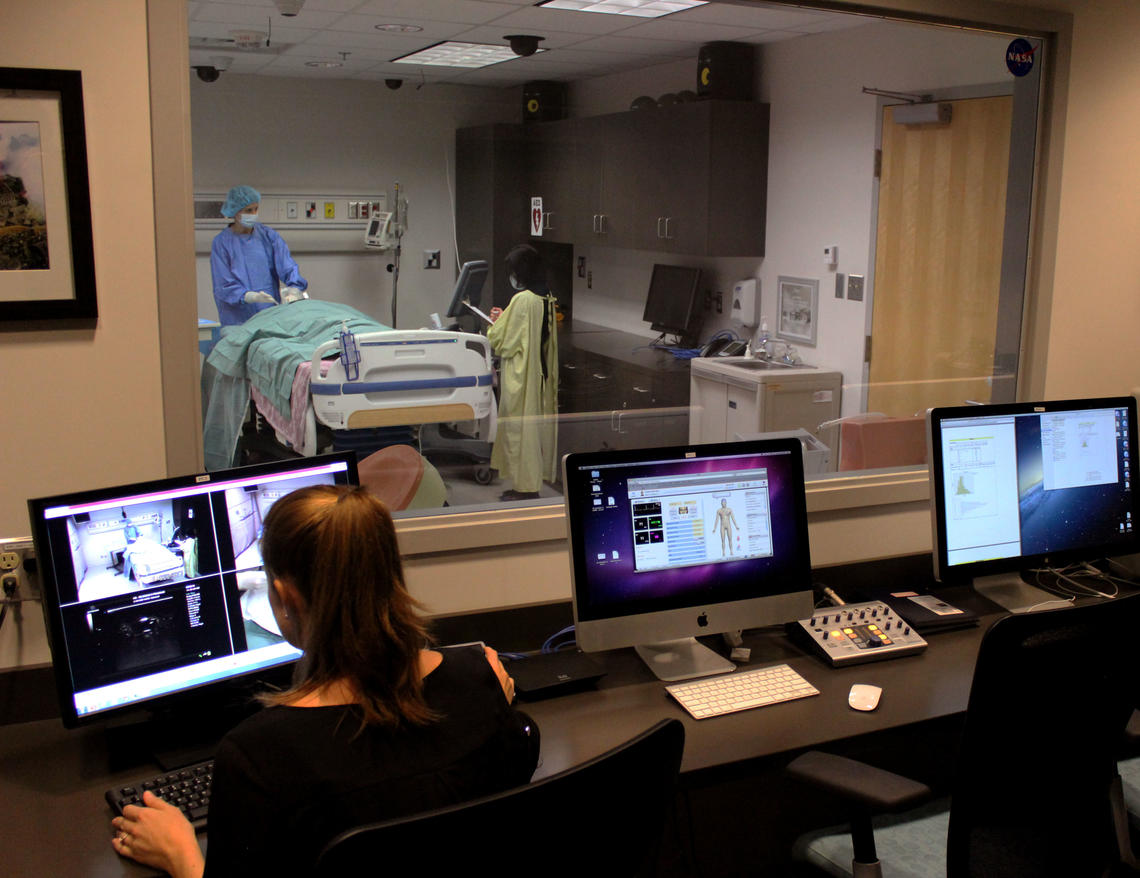Jan. 31, 2018
UCalgary's W21C lab teams up with technology and aging network to test new products

W21C's Healthcare Human Factors Simulation Laboratory is a newly named AGE-WELL Core Facility.
Jeff Caird, Cumming School of Medicine
Technology is an integral part of our day-to-day lives, and is increasingly being adapted to improve our health, wellness, and care delivery. We now see technologies in the home used as solutions to health problems. We have devices we can set to remind us to take our medication at the right time. There are systems that monitor our movement and text a family member when we fall.
However, some of the new tools on the market are not designed with older users in mind. Consideration hasn’t been given to how large the buttons and knobs need to be, or how large the font is and, more generally, how the devices will fit into the everyday lives of older adults.
Understanding how best to design technologies for the needs of older adults and their care providers is where the University of Calgary’s Ward of the 21st Century (W21C) comes in as a new AGE-WELL Core Facility in Human Factors and Usability Testing. W21C’s Healthcare Human Factors and Simulation Laboratory will help researchers and industry from across Canada to test new ideas, prototypes, and health care products with seniors and care providers.
“Our organizations both place a premium on involving end users ― the people who will actually use our innovations ― at all stages of product design and evaluation,” says Dr. Alex Mihailidis, scientific director of AGE-WELL, Canada’s Technology and Aging Network. “This partnership will help ensure that our network members get the user’s perspective, so that we come up with usable, real-world products to support older adults and their caregivers.”
Human Factors focuses on understanding how people interact with the world around them, physically and cognitively. In health care specifically, human factors research examines people’s interactions with things like devices, their environment, and information technologies.
“Finding solutions to aging in place is a strategic research priority for W21C,” says Dr. John Conly, medical director of W21C and professor at the Cumming School of Medicine. “Most of us would prefer to age in place, in our homes and our communities, surrounded by the people and things we know.”
As an AGE-WELL Network of Centres of Excellence Core Facility, W21C will be a resource to a national network of industry, non-profit organizations, government, care providers, community members, and academic partners that work together using high-quality research to drive innovation and create technologies and services to support healthy aging.
“Our partnership with AGE-WELL provides an exciting opportunity for us to collaborate at a national level ― to develop and test innovations that will enable us to age where we choose,” says Conly.
W21C is a research and innovation initiative based in the University of Calgary’s O’Brien Institute for Public Health in the Cumming School of Medicine, and the Calgary Zone of Alberta Health Services. W21C conducts health systems research to make care better by focusing on improving patient safety and quality of health care delivery.
This new partnership supports the UCalgary strategic research theme of Engineering Solutions for Health.
Dr. John Conly is a professor in the departments of medicine, pathology and laboratory medicine, and microbiology, immunology and infectious diseases and a member of the Calvin, Phoebe and Joan Snyder Institute for Chronic Diseases and the O’Brien Institute for Public Health at the Cumming School of Medicine. He is a physician with Alberta Health Service in Infectious Diseases, Internal Medicine.
The University of Calgary’s multidisciplinary Engineering Solutions for Health: Biomedical Engineering research strategy drives solutions to our most pressing health challenges in disease and injury prevention, diagnosis and treatments. Our biomedical engineering researchers make a significant impact in our communities by extending lives, improving quality of life, promoting independence, and continuously improving the health system.


